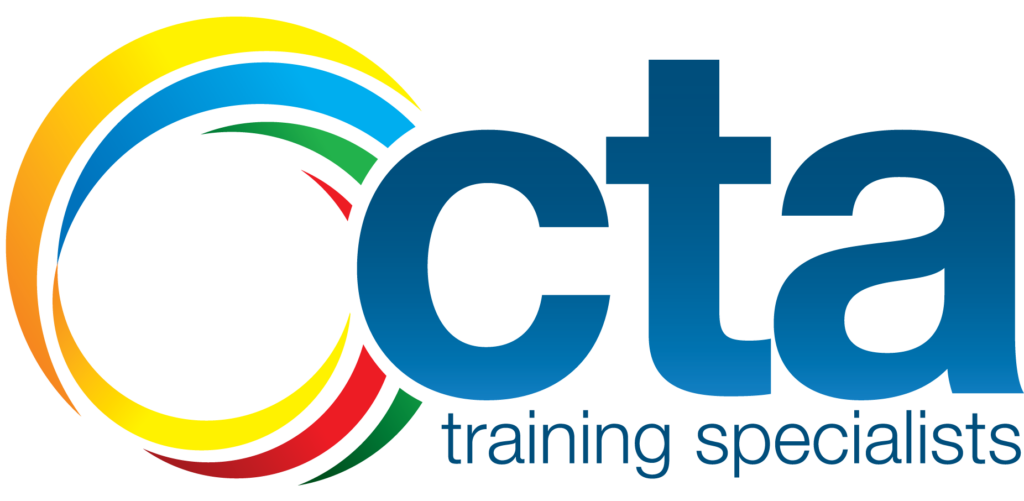Food Safety Supervisor NSW – CMAA
$120.00 Original price was: $120.00.$110.00Current price is: $110.00.
Gain the Qualification that Allows You to Manage Food Handling in New South Wales!
SITXFSA005 Use Hygienic Practices for Food Safety
SITXFSA006 Participate in Safe Food Handling Practicesy
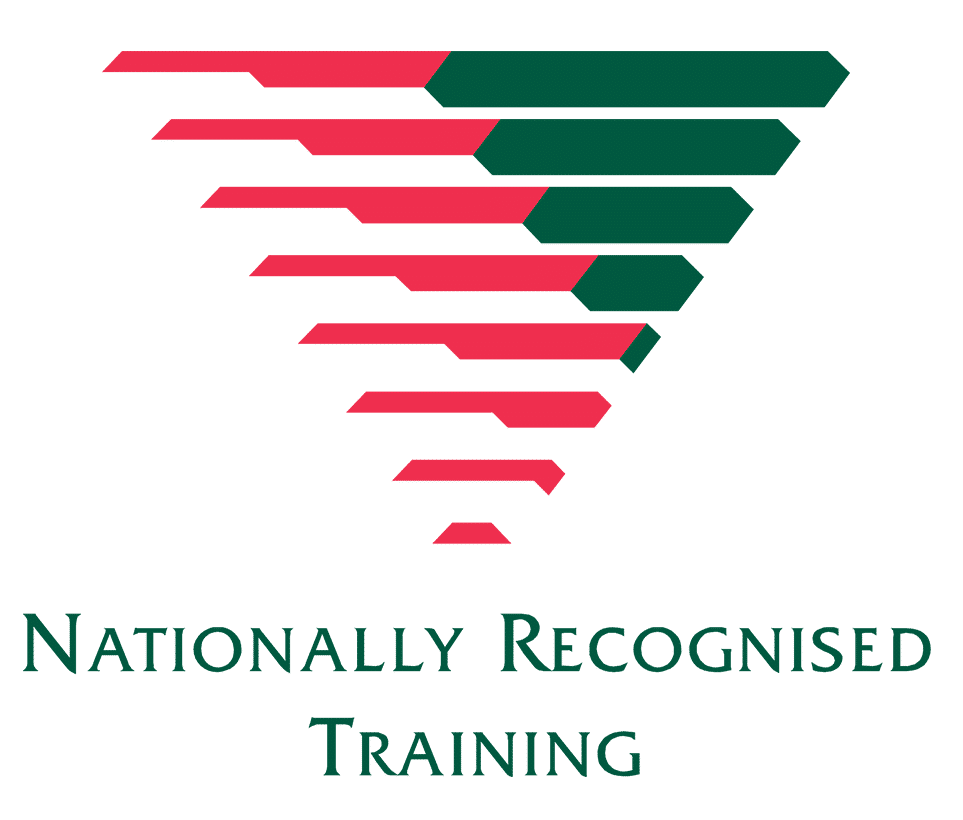
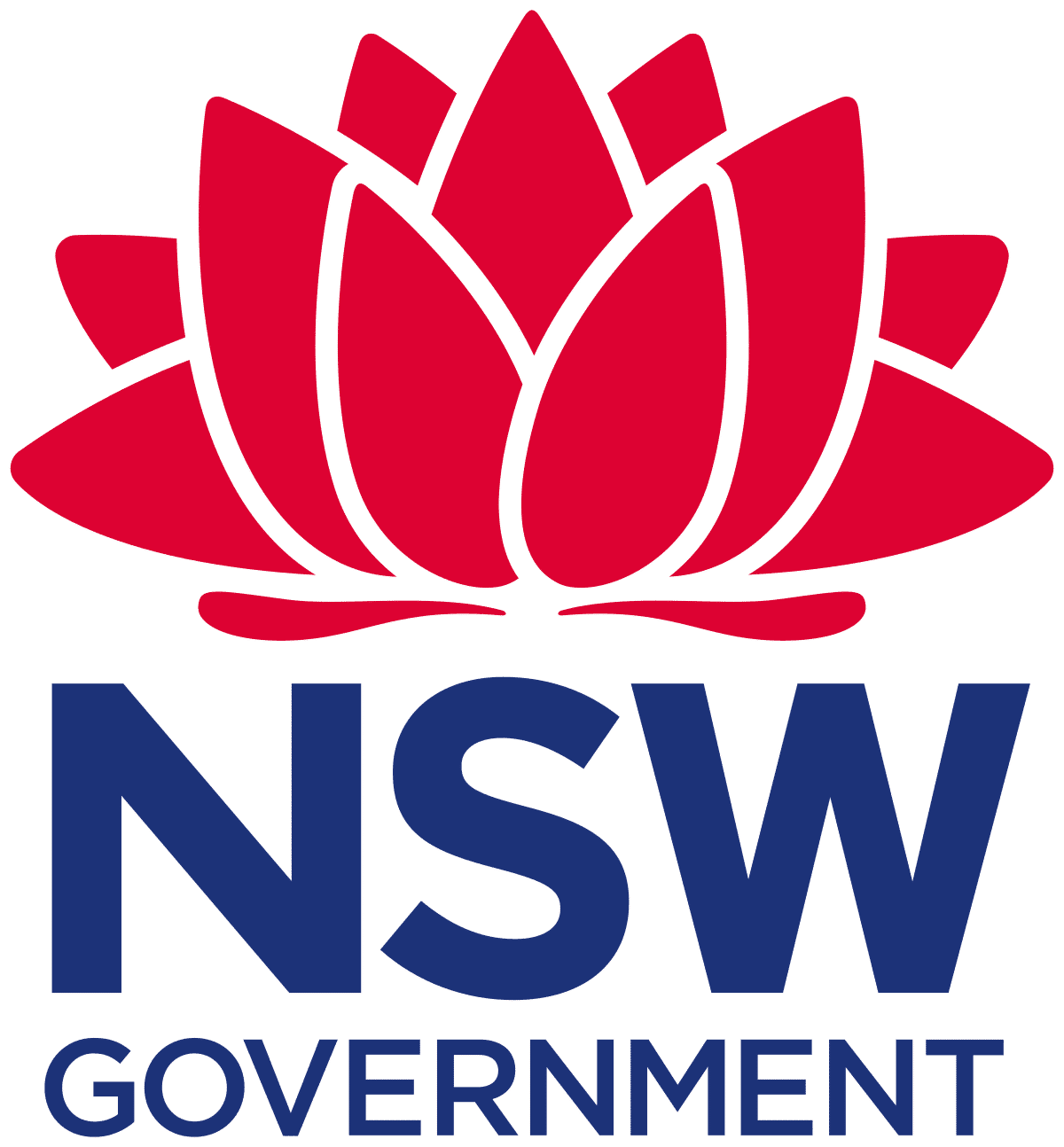
Approved by the NSW Food Authority
This course provides the nationally recognised SITSS00069 – Food Safety Supervision Skill Set certificate and will enable you to be appointed as a certified Food Safety Supervisor under the National Food Standard 3.2.2A, which applies to all Food Service industries. You will receive a nationally recognised statement of attainment for SITXFSA005 Use Hygienic Practices for Food Safety & SITXFSA006 Participate in Safe Food Handling Practices
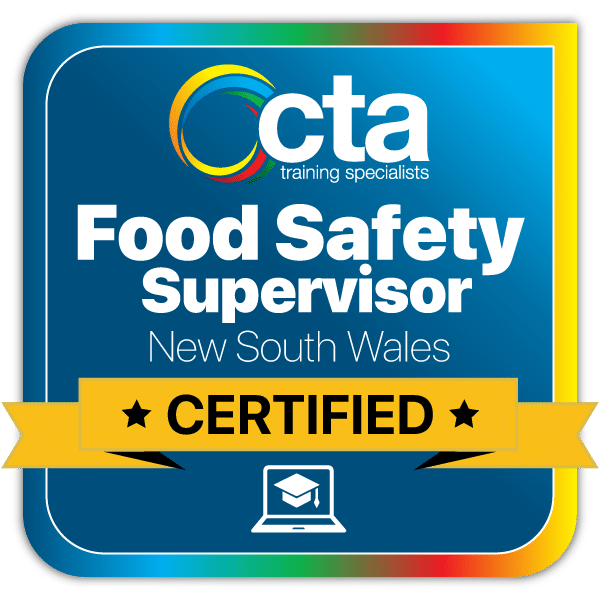
Digital Credentials available NOW!
Earn your digital badge today, now available with all Accredited courses. Delivered straight to your email upon successful completion, supercharge your profile and job applications, share via Facebook, LinkedIn, Twitter and email.
more informationCourse Overview
This Online Food Safety Supervisor NSW course provides the NEW official NSW Food Authority Blue & Orange Certificate.
This course provides the nationally recognised certificate for SITXFSA005 Use Hygienic Practices for Food Safety & SITXFSA006 Participate in Safe Food Handling Practices, and allows you to work in the retail and fast food sector in NSW.
This unit describes the performance outcomes, skills and knowledge required to handle food safely in a hospitality environment following organisational food safety procedures and relevant legislation and standard procedures. Some legislative requirements and knowledge will differ across borders.
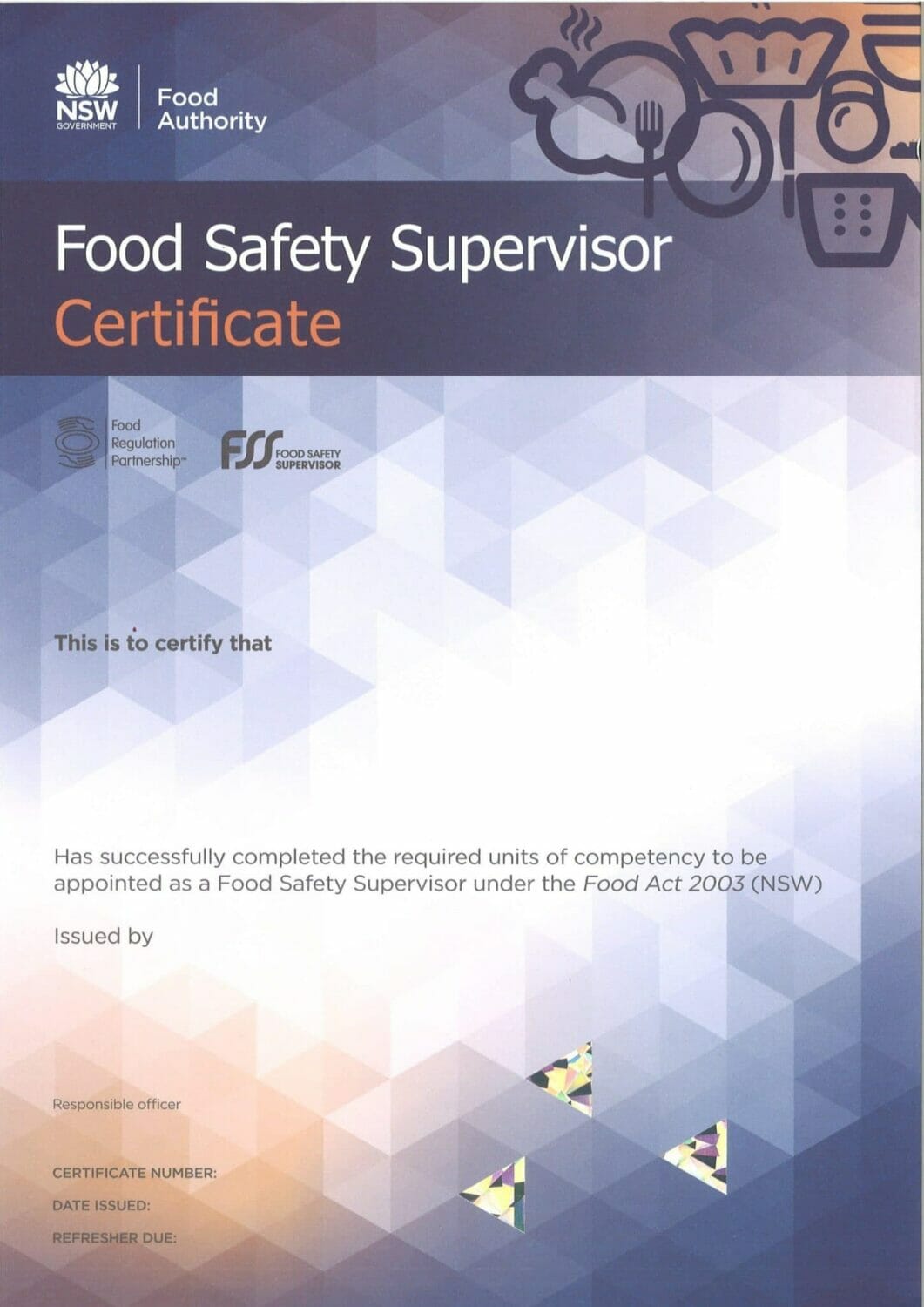
This Online Food Safety Supervisor NSW course provides the NEW official NSW Food Authority Blue & Orange Certificate.
This unit applies to all hospitality organisations with permanent or temporary kitchen premises or smaller food preparation or bar areas. This includes fast food outlets, food retail operators like caterers for private functions, convenience stores, delicatessens, grocers, retail markets and stalls and supermarkets. It applies to food handlers which can be any person who directly handles food or food contact surfaces such as cutlery, plates and bowls. People at many levels use this in the workplace during the course of their daily activities, including cooks, chefs, caterers, kitchen stewards, kitchen hands. This online Food Safety Supervisor training course is a nationally recognised certification.
Depending on the requirements of your workplace and/or local council, if you are working in the retail industry, you can also undertake the hospitality food safety supervisor course (SITXFSA005 Use Hygienic Practices for Food Safety & SITXFSA006 Participate in Safe Food Handling Practices).
- This course is also suitable for international students and other VISA holders. International/Overseas Students on a subclass 500 study visa are now able to undertake a number of Vocational Education and Training (VET) courses with us. This includes the Nationally Accredited units such as SITHFAB0021 Provide responsible service of alcohol, SITXFSA005 Use hygienic practices for food safety, SITXFSA006 Participate in safe food handling practices and Food Safety Supervisor. You can find out more information on the Department of Education, Skills and Employment website.
Please note that from January 1, 2023 International students studying in Australia with an Australian education or training provider will need to get a USI before being issued with their nationally accredited certificate/s. Read more here.
*Same day certificates – if you have uploaded your assessment/s by 4pm Queensland time on a business day (Monday – Friday) and they are marked as competent by one of our trainers and assessors, and you have also provided a verified USI number, you will be issued with your nationally recognised Statement of Attainment via email on the same day. If your assessment is marked competent outside of business hours, you will receive your Statement of Attainment by close of business the NEXT business day. Please note your personal information will be passed to the NSW Government, Department of Primary Industries Food Authority.
This online Food Safety Supervisor course covers the skill and knowledge requirements common to all States and Territories. Some legislative requirements and knowledge will differ across borders, however you will learn to;
- Follow a food safety program
- Store and handle food safely
- Maintain personal hygiene standards
- Maintain equipment and work area
Requirements
To begin our Food Safety Supervisor online course, you will need the following:
Your USI Number
All students undertaking accredited training in Australia require a USI number. Your personal information entered for your USI must exactly match the details in your training account with us. Click here to create your USI.
Please note that from January 1, 2023 International students studying in Australia with an Australian education or training provider will need to get a USI before being issued with their nationally accredited certificate/s. Read more here.
Personal Information
We will need your full name, street address, mailing address (if applicable), date of birth and phone number to create an account in our system for you.
Email Address
We need an active email address to set up your account, and send you updates on your training status.
Statement of Attainment
Your Statements of Attainment, certificates of completion are provided in a printable PDF format.
Frequently Asked Questions
Our FAQ’s below may help you, if you can’t find the answers you are looking for, feel free to contact our fully qualified support staff via LiveChat.
When will I receive my FSS?
Any individual looking to work in the retail industry that requires you to handle food or food contact services such as cutlery, etc. MUST hold a valid Statement of Attainment in this unit of competency. When your assessments have been marked as competent by one of our assessors, and you have successfully completed your food safety online training, you will be issued with your nationally recognised Statement of Attainment via email. On completion of this course, you will receive two (2) certificates;
- New South Wales Food Authority Food Safety Supervisor Certificate (Blue & Orange Certificate*) – will be issued via registered post within ten (10) business days (Australia Post) to the residential address provided on enrolment (public holidays not included) after the Statement of Attainment issuance.
- SITXFSA005 Use Hygienic Practices for Food Safety
- SITXFSA006 Participate in Safe Food Handling Practices
How long will my FSS last?
NSW Food Safety Supervisor certificate is only valid for 5 years from the date of issue. The nationally accredited online training offered by CTA Training Specialists is approved and recognised and will not expire. However, it is recommended to renew these certificates every three years. Some local councils require these certificates to be renewed every three years.
Who needs an FSS Certificate?
The Food Act 2006 (the Act) requires every licensed food business to have a Food Safety Supervisor. Every licensed food business must provide to the Local Government that issued the licence, information regarding the food safety supervisor for that business.
Do I have to finish the course in one session?
No, you can login as many times as required to complete the course, your progress will be saved each time.
Information required for enrolment:
Date of Birth
It is a government requirement that we capture this information.
Email Address
Your email address must be unique and not previously used by another student.
Name on my certificate?
Our system will print your name EXACTLY as you enter it into the enrolment screen. Please take care to spell your name correctly and use capitals correctly.
Incorrect Information
Simply send an email to [email protected] or contact us via LiveChat on our website and we can amend the information.
English is my second language
If you feel you may have difficulties understanding the learning materials, simply send an email to [email protected] or contact us via LiveChat on our website.
Are international students eligible?
This course is suitable for international students excluding those on a subclass 500 study visa. If you are a student on a subclass 500 study visa, you are able to study the SITXFSA005 Use hygienic practices for food safety, SITXFSA006 Participate in safe food handling practices. You can find out more information on the Department of Education, Skills and Employment website.
Please note that from January 1, 2023 International students studying in Australia with an Australian education or training provider will need to get a USI before being issued with their nationally accredited certificate/s. Read more here.
How long do I have to finish my online course?
- From the time of enrolment, you have three (3) months to complete your online training course.
- There are no refunds if you do not complete the course within the time frame given.
- Please allow approximately nine (9) to ten (10) hours to complete your online training course.
- You can login as many times as required to complete the course, your progress will be saved each time.
Bundle and Save
Bundles NSW
Valid In QLD, WA, VIC, NT, SA
$240 value
NATIONALLY RECOGNISED
Valid In NSW
$266.00 value
NATIONALLY RECOGNISED
Bundles NSW
Valid In NSW
$221.80 value
NATIONALLY RECOGNISED
Need to Know More?
- Course Outline
- Validity
- Statement of Attainment
- Pre-Requisites & RPL
- Assessment
- Requirements
- Who needs an FSS?
There are 4 core sections in the online Food Safety Supervisor Course to complete followed by a final assessment and practical. Each section includes video, readings, interactive activities and case studies to assist in your learning experience.
This online Food Safety Supervisor course covers the skill and knowledge requirements common to all States and Territories. Some legislative requirements and knowledge will differ across borders, however you will learn to;
Handle Food Safely in a Hospitality Environment:
Element 1
Follow food safety program
- Access information from food safety program to ensure food handling is completed safely
- Monitor food safety according to organisational processes and document as required
- Control identified food safety hazards relevant to operations
- Take corrective action within scope of job responsibility when non-compliance and food safety hazards are identified and report to relevant personnel as required
- Record food safety information, including equipment breakdowns, according to food safety program
Element 2
Store and handle food safely
- Receive and transport food supplies to appropriate storage areas promptly, safely and without damage
- Store and display food in environmental conditions that protect against contamination and maximise freshness, quality and appearance
- Store food at controlled temperatures and ensure that food items remain at correct temperature during storage and display
- Use cooling and heating processes that support microbiological safety of food
- Identify and take action to remove potentially unsafe food safety processes or situations
- Change or sanitise food-handling implements between handling different food products to avoid cross-contamination
- Mark and keep separate from other foodstuffs any food identified for disposal until disposal is complete
- Dispose of food promptly to avoid cross-contamination
Element 3
Maintain personal hygiene standards
- Follow hand washing procedures to minimise risk of contamination
- Wear appropriate clothing and footwear and maintain uniform cleanliness standards
- Secure hair and cover all open wounds to minimise risk to food safety
- Report any health issues or illness to appropriate personnel
Element 4
Maintain equipment and work area
- Clean and sanitise equipment, surfaces and utensils following organisational procedures
- Identify and report cleaning, sanitising and maintenance requirements
- Dispose of or report chipped, broken or cracked food handling utensils
Plus, Additional Information on Allergen and Egg Management for NSW Food Safety.
CTA Training Specialists is responsible for ensuring compliance and conducts regular reviews on all of its training programs. CTA Training Specialists will ensure that through the implementation of the Australian Qualifications Framework Issuance Policy that students will be issued the certification documentation to which they are entitled.
In Australia each state has its own legislation governing Responsible Safe Food Handling. This online course meets the requirements of the National Training Package for NSW. This Food Safety Supervisor course meets the requirements of the Australian Qualifications Framework (AQF).
Important Note for NSW: CTA Training Specialists is an approved trainer for Food Safety Supervisor
online training in NSW therefore this qualification applies to NSW hospitality businesses.
SITXFSA005 Use Hygienic Practices for Food Safety Handle Food Safely and SITXFSA006 Participate in Safe Food Handling Practices are valid in:
- New South Wales (NSW)
- Victoria (VIC)
- Queensland (QLD)
- Western Australia (WA)
- Northern Territory (NT)
- South Australia (SA)
After successful completion of this course, we provide you with nationally recognised SITXFSA005 Use Hygienic Practices for Food Safety and SITXFSA006 Participate in Safe Food Handling Practices. The Australian Qualifications Framework (AQF) is the national set of standards which assures nationally consistent, high-quality training and assessment services for the clients of Australia’s vocational education and training system.
Are there any pre-requisites for this course?
- For Australian Residents, there are no pre-requisites
- This course is also suitable for international students and other VISA holders. International/Overseas Students on a subclass 500 study visa are now able to undertake a number of Vocational Education and Training (VET) courses with us. This includes the Nationally Accredited units such as SITHFAB002 Provide responsible service of alcohol, SITXFSA001 Use hygienic practices for food safety, SITXFSA002 Participate in safe food handling practices and Food Safety Supervisor. You can find out more information on the Department of Education, Skills and Employment website.Please note that from January 1, 2023 International students studying in Australia with an Australian education or training provider will need to get a USI before being issued with their nationally accredited certificate/s. Read more here.
Recognised Prior Learning (RPL)
All students are supplied with the following information during the course to help build a greater understanding and increase knowledge in preparation for the assessments.
- Documents
- Readings
- Links to relevant websites
- Case studies
- Supervisor Report
- Videos
We use the following assessment tools to determine a student’s competence.
- Knowledge checks that require the student to select the correct answer/s from multiple choice questions
- Knowledge checks that require the student to respond by selecting True or False
- Knowledge checks that require the student to select all correct answers (multiple choice)
- Online Assessment in which you are required to answer ALL questions correctly.
- Supervisor Report (observation checklist), after you complete the online assessment you are required to complete and return the Supervisor Report. This report forms part of the overall assessment. It is a requirement that you are able to demonstrate the application of the skills you gained from the online course in a practical way in a commercial kitchen.
Who can sign off my supervisor report?
Your Supervisor Report must be completed by someone who is currently working in the food industry. It can be someone:
- you are currently working with, or
- you have previously worked with (within the last 12 months), or
- you have volunteered with.
Make sure that the person who is completing your practical assessment, observes you doing everything listed on the report on three separate occasions.
Not working in the food industry?
Don’t stress, our food safety courses can be completed by anyone regardless of prior experience.
What about my practical assessment?
We understand it can be difficult when you’re new to the industry to have the practical assessment filled out, so there are a few options:
- If you have worked in the food industry before, then you can have a past manager or co-worker complete the assessment. They don’t need to be a chef or a trained food safety supervisor. It can be anyone currently employed in the food industry (with a minimum of 12 months experience).
- If you have a friend or family member employed in the food industry, they can also sign off on your practical assessment. Again, it doesn’t need to be a qualified chef or food safety supervisor, It can be anyone currently employed in the food industry (with a minimum of 12 months experience).
- You can also speak to your local council and ask for a list of food-based charities that you can volunteer for. Many of these organisations deal with food and any regular volunteer is able to sign off on your practical assessment.
Make sure that the person who is completing your practical assessment, observes you doing everything listed on the report on three separate occasions.
To complete this online course you will require:
- A unique email address not previously used by another student
- Unique student identifier (USI), a government requirement. You can get a USI here
- Identification, you will need to provide us with photo identification.
- A suitable device, computer, laptop, tablet, or smartphone with internet access and a modern browser ie. Chrome
- Supervisor Report – There are some things we cannot see you do on your computer. You will need to demonstrate your skills to somebody you work with or someone who works in the food industry. Please read the assessment tab very carefully. There are NO refunds if you cannot get the report signed off.
The Food Act 2006 (the Act) requires every licensed food business to have a Food Safety Supervisor. Every licensed food business must provide to the Local Government that issued the licence, information regarding the food safety supervisor for that business.
